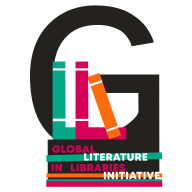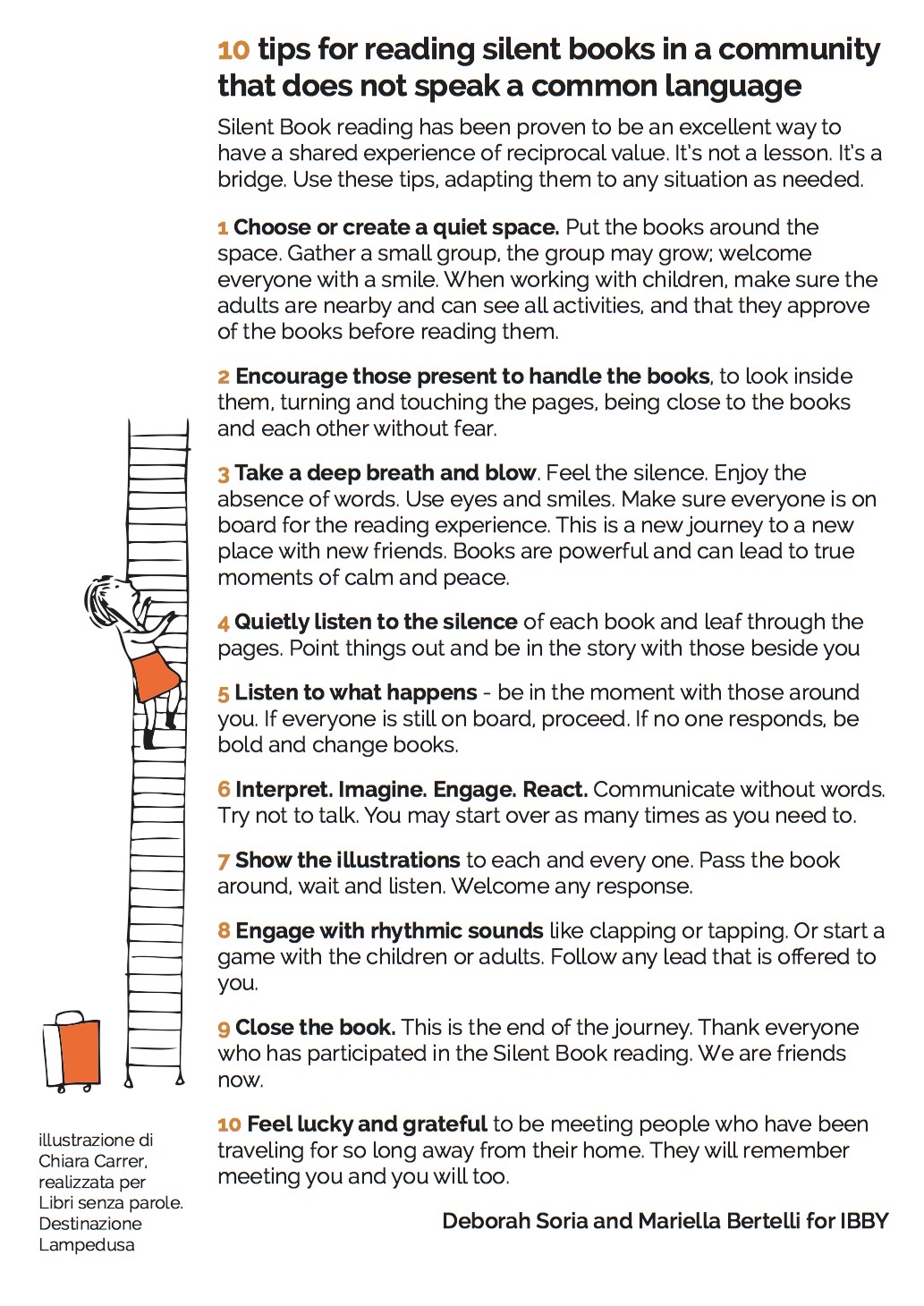Any children’s librarian will tell you that as children are read picturebooks they are not usually silent participants. So this category of the picturebook is a little puzzling until you realise that the books are silent because there are no words on the page. The story is carried by the illustrations and the reader who constructs the story using their own words.
Recently I was privileged to attend the Waikato Picturebook Research Unit’s fifth annual seminar here in New Zealand. The topic chosen this year was “Silent Picturebooks” and the day was spent listening to presentations and discussing these marvels. Words can become a short cut and once the text has been read then there is a tendency to immediately turn the page rather than dwell on the illustrations. Remove the text and you invite the reader to take time and create meaning for themselves. Nicola Daly, a co-director of WaiPRU, gives wonderful insight in her blog post about wordless picturebooks.
The IBBY (International Board on books for Young People) collection of silent books was on display in the Waikato University library for the month. IBBY created this collection with donations from librarians across the globe in response to the waves of refugees from Africa and the Middle East arriving in the Italian island, Lampedusa. They wanted to gift the children with story and an excellent way to do this is through these wordless picturebooks. As Professor Bronwyn Cowie explained, “when you can’t read the text of a book it becomes silent.” IBBY created this image to give ideas on how to utilise wordless picturebooks within communities of people who do not share a common language.
As Crissi Blair, of the National Library of New Zealand, Services to Schools team, said in her keynote address “words can create an intimidating barrier” for beginning readers so by removing the words the authors of the wordless book bring a freedom to their audience to co-create story with them. She also observed that many of the books deal with very sensitive topics. Sometimes tragedy renders us speechless, we simply do not know what to say to others encountering such heartbreak. Wordless picture books allow those subject to be explored without pressure to speak and so connect with the heart.
Dr. Darryn Joseph presented his research into how children bring their own cultural heritage and ways of creating knowledge to wordless picturebooks. He worked with a Maori speaking family and asked the children to read three different stories. He found the books allowed the reader to easily change perspective as they read. They were relating to the stories asking themselves “Is this story about me?” or “Is it about someone else?” and forming conclusions as they progressed through the story.
Julia Marshall of Gecko Press expressed concern that publishers often find it harder to sell wordless picturebooks. Perhaps parents and librarians find them hard to share with children. Below is a video created by Kelly Verheyden a children’s librarian at San Diego Public Library to encourage people to read wordless books to children. The books she chooses to share is one that was presented on the day of the seminar.
Below is a list of some of the books that were discussed with links to blog posts, Good Reads, YouTube or publishers sites for more information. I hope you will be able to find some of the titles and enjoy them.
Migrants by Issa Watanabe
ISBN 9781776573134
The farmer and the clown by Marla Frazee
ISBN 9781442497443
A Ball for Daisy by Chris Raschka
ISBN 9780375858611
Stormy: a story about finding a forever home by Guojing
ISBN 9781524771775
Where’s Walrus? by Stephen Savage
ISBN 9780545402958
Follow the Firefly by Bernardo Carvalho
ISBN 9780994109828
Slam! A tale of consequences by Adam Stower
ISBN 9781771470070
The Chicken Thief by Beatrice Rodriguez
ISBN 9781877467318
The Little Barbarian by Renato Moriconi
ISBN 978-0802855091


